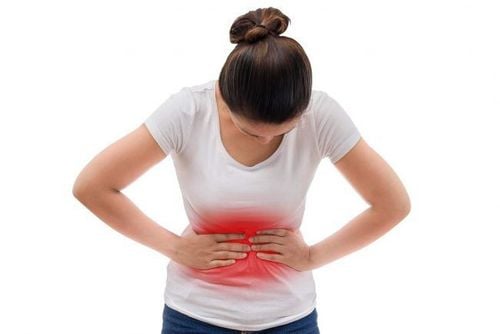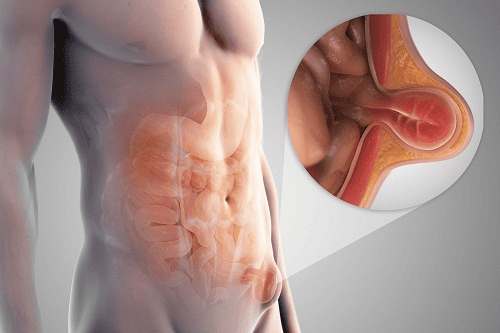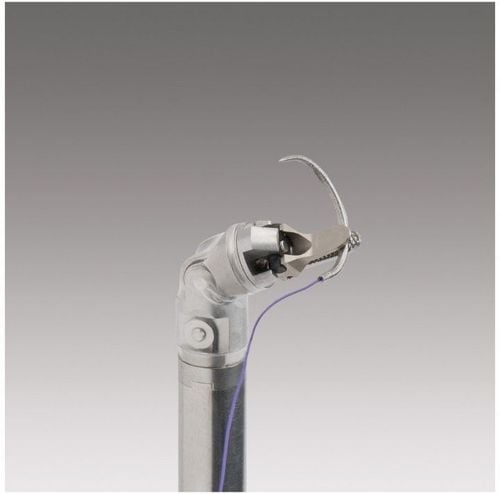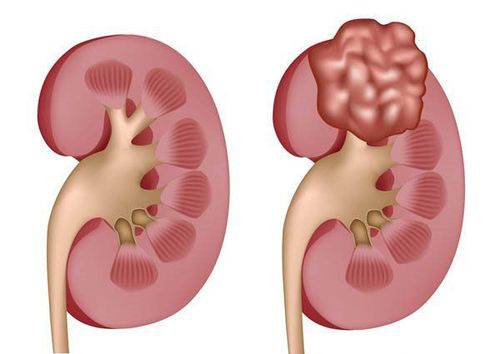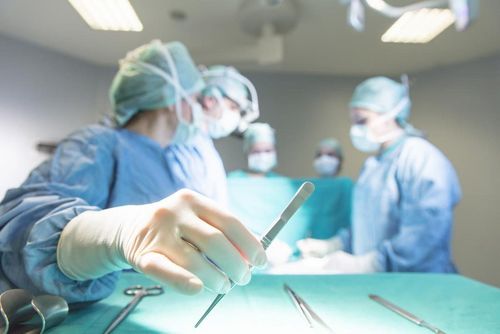This is an automatically translated article.
The article is professionally consulted by Doctor, Dr. Do Minh Hung - Department of General Surgery - Vinmec Central Park International General HospitalAbdominal wall hernia is a common condition that occurs when the abdominal wall muscle is open or weak, causing a protrusion on the abdomen. When the abdominal wall muscles are stretched, increasing the pressure in the abdominal cavity, the mass becomes larger and more obvious.
1. What is abdominal wall hernia?
Abdominal wall hernia is a disease caused by the movement of viscera from the abdominal cavity to the outside of the abdominal wall through a weak spot in the abdominal wall. The most common is an inguinal hernia, the weakness of the abdomen can be an old incision or where the abdominal wall has no muscle layer, only fascia or fascia.Besides, there are umbilical hernias, epigastric hernias, lumbar hernias... these types of hernias all manifest on a convex tumor on the abdomen, accompanied by a feeling of pain and discomfort. .
When the abdominal wall muscles are weak or open, it will cause a hernia of the abdominal wall. For example, when you lift something, when coughing or working too hard, or when straining while having a bowel movement can all cause a hernia of the abdominal wall.
Congenital abdominal wall hernia can also occur, but the exact cause is unknown.
2. Signs of abdominal wall hernia
When there is a hernia of the abdominal wall, the patient will have symptoms such as:Appears a bulging tumor on the abdominal wall or in the groin area, very easy to see; Feeling pain, tightness in the abdomen; Limit movement; Loss of aesthetics; Muscles in the abdominal wall are stretched, there are signs of increased pressure in the abdominal cavity; When doing heavy work, lifting or carrying heavy objects, coughing or straining while defecating, the abdominal wall becomes enlarged and bulging
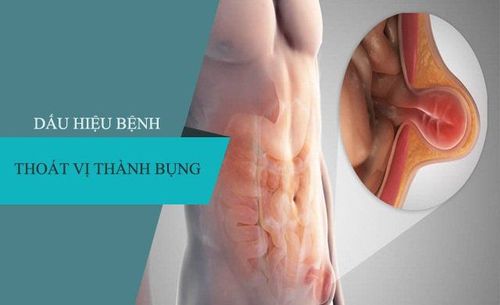
Khi cơ thành bụng yếu hoặc hở sẽ gây ra tình trạng thoát vị thành bụng
3. Causes of abdominal wall hernia
Abdominal wall hernia is a condition that occurs when the abdominal wall muscle is open or weak. It is this defect that causes a protrusion on the abdomen. The pressure in the cavity will increase as the abdominal wall muscle is stretched more, the mass will become larger and more obvious.Besides, abdominal wall hernia appears can also be due to the lifestyle, diet or drugs that you are using.
Abdominal wall hernia in neonates is currently unknown. This condition can be caused by hormone or genetic changes in the fetus. Congenital abdominal wall hernia can also occur due to the mother's exposure to other environmental agents, for example food, drink, drugs that the mother used during pregnancy... Therefore Pregnant women should pay special attention to the implementation of a healthy lifestyle, a reasonable and scientific diet, and regular health checks during pregnancy.
4. Risk of acquiring abdominal wall hernia
Abdominal wall hernia occurs in all ages and subjects. Abdominal wall hernia can also occur in infants, also known as congenital abdominal wall hernia.Some factors increase the risk of abdominal wall hernia, including:
Previous abdominal surgery; Do heavy, strenuous jobs; Overweight and obesity; The mother's diet, drugs used during pregnancy, the environment... also affect the fetus and cause hernia of the abdominal wall in the newborn; Pregnant women too young; Use of alcoholic beverages and smoking.
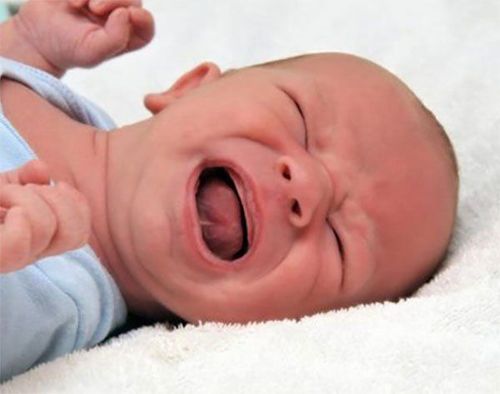
Thoát vị thành bụng xảy ra ở mọi lứa tuổi, mọi đối tượng
5. Is abdominal wall hernia dangerous?
Abdominal wall hernia is a disease that is quite dangerous to the health and life of the patient. If this condition is not detected and treated promptly, it will cause a number of complications such as: the hernia is strangled, the intestines and nearby components will be tightened in the hernia sac. Blood cannot reach to nourish these components, putting the hernia at risk of necrosis and death if not operated in time.Depending on the type of hernia, the doctor will prescribe different surgical methods such as open surgery, or laparoscopic surgery. In particular, at present, Vinmec Central Park International General Hospital is applying robotic surgery to treat abdominal wall hernias. This is a new, modern, and highly effective surgical method.
Robotic surgery helps patients feel less pain, the risk of infection is also significantly reduced, along with a quick recovery time, shortened hospital stay. The technique was performed by Dr. Do Minh Hung - Head of General Surgery Department, Vinmec Central Park International General Hospital. Dr. Hung has more than 25 years of experience in the field of General Surgery with dozens of valuable scientific research works.
Please dial HOTLINE for more information or register for an appointment HERE. Download MyVinmec app to make appointments faster and to manage your bookings easily.




